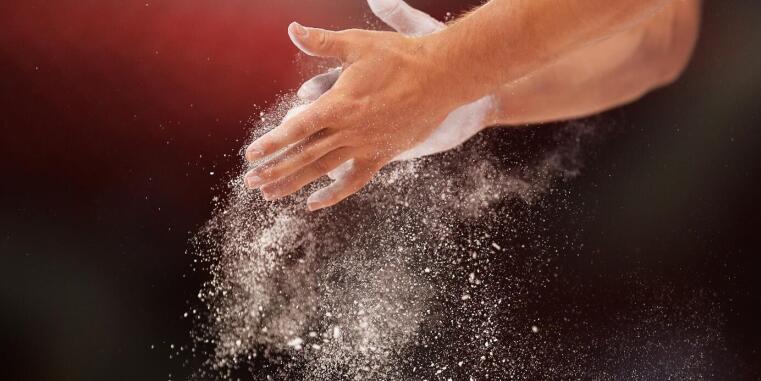
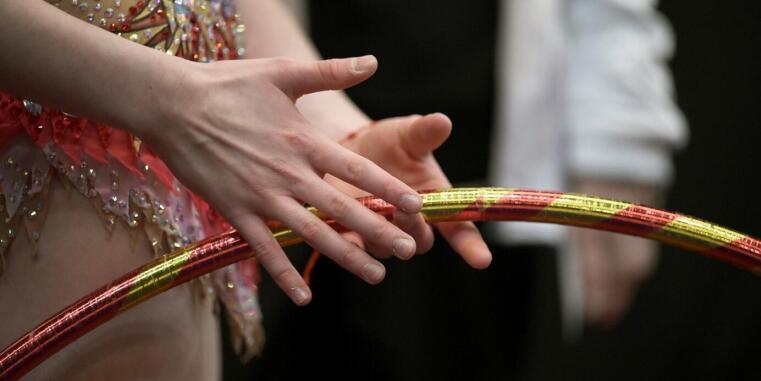
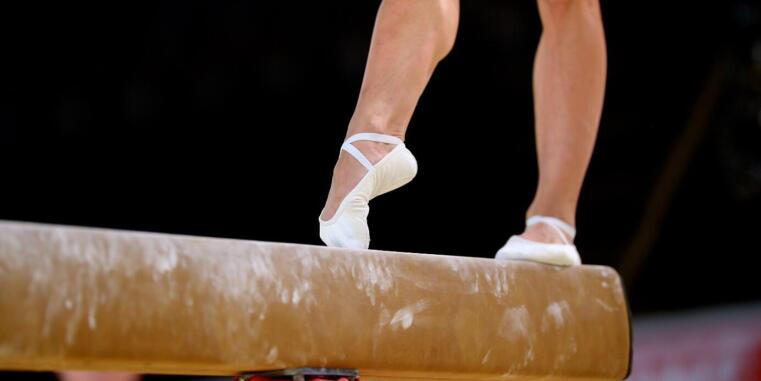
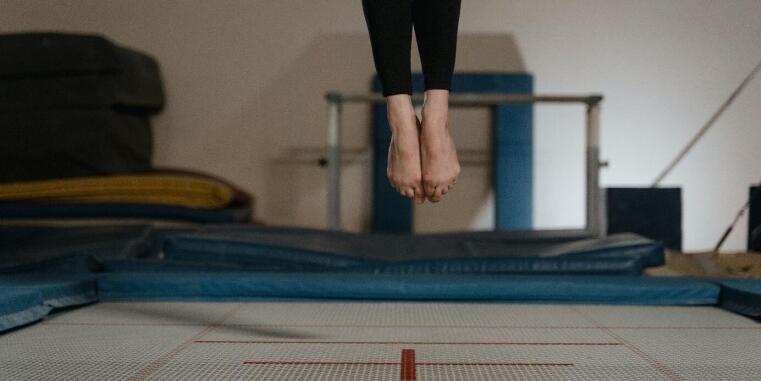






With the key question ‘How do you lead to success?’, the CULTurn project has set itself the goal of supporting national squad coaches in the German Gymnastics Federation in developing their leadership skills.
The profound and lasting influence of coaches' leadership behaviour on athletes and teams in competitive sports is undisputed today (Arthur & Bastardoz, 2020; Peachey et al., 2015). The core of leadership is to influence individual and collective efforts in such a way that collective goals are achieved (Yukl, 2012).
Leaders are expected to demonstrate a variety of behaviours that integrate complementary or even competing roles and requirements. The challenge for successful leadership in competitive sports lies in understanding the different role requirements and utilising personal strengths and situation-appropriate action orientation. Contrasting leadership roles can be mapped using the Competing Values Framework (CVF) (Quinn, 1984), supplemented by visionary-charismatic leadership communication.
Valid measurement methods are required to evaluate the leadership success of coaches in competitive sports based on this leadership model. To date, there has been a lack of such valid leadership diagnostics for coaches in competitive sports (in Germany).
The objectives of the project were:
The first step was to record the trainers current leadership behavior. To do this, they had to fill out an online questionnaire themselves, which took a maximum of 30 minutes. The coaches also determined the people who were to give them feedback: at least one supervisor, at least five colleagues and at least five athletes. On this basis, the participating coaches received their personal competence report.
In the second step, an appointment was made for an evaluation meeting, which lasted 60 minutes and took place online. In the coaching process, which was individually coordinated with the trainers in terms of content and organization, the following offers were made: three individual coaching sessions (60 minutes, online), the possibility of on-site training observation at the locations, participation in online workshops and participation in a group workshop with (federal) trainer colleagues (one of which took place on-site). The aim of the group workshops was in particular to further strengthen leadership skills both individually and in the group.
In the third step, the external image participants from the first step came into play again. For a second time, the trainers' leadership behavior was recorded using the online questionnaire in order to identify possible changes. Here, the trainers again received a personal competence report, and in a final evaluation meeting, concrete progress, strengths and potentials were worked out once again so that the participants can continue to work on themselves individually after the end of the project.
In addition to a certificate of participation, all participants also received 15 training units from the DTB to extend their coaching license.
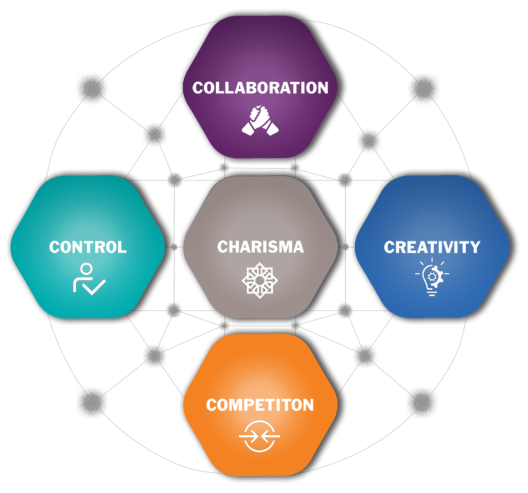
The instrument underlying the project is based on the ideas of Katherine A. Lawrence, Peter Lenk and Robert E. Quinn, who developed the model of competing leadership roles, also known as the Competing Values Framework. This model is extended by the concept of charismatic leadership, as supplemented by Nicolas Bastardoz and Calum A. Arthur. As Prof. Dr. Ralf Lanwehr from the South Westphalia University of Applied Sciences was able to show in his studies in the team sports context, the model can also be applied in sport and has now been adapted specifically for the gymnastics context.
It is assumed that coaches have to consider different strategy areas that compete with each other when dealing with their athletes. These four strategy areas are “Creativity vs. Control” and “Collaboration vs. Competition”, with charismatic leadership positioned as an additional dimension between the four other strategy areas.
Creativity: The motto of the creative leadership role is “do things first”. Creative trainers are characterized by openness to change and a willingness to innovate. They are always up to date with the latest developments in their environment and are willing to push existing boundaries. The “Creativity” strategy field encompasses the roles of innovator, stimulator and motivator.
Control: The motto of the controlling leader is “doing things right”. In this context, the focus is on precision, technology and process optimization. Errors should be prevented as early as the planning stage of training through clear rules and guidelines. The “Control” strategy field encompasses the roles of coordinator, observer and advisor.
Collaboration: In line with the motto “doing things together”, trainers promote a cooperative way of working by forming teams, working towards common goals and cultivating interpersonal relationships. They advise team members and strengthen individual strengths in the group context. The roles assigned to this strategy field are facilitator, team developer and mentor.
Competition: The motto of the competition is “Do things decisively”. The focus here is on acting quickly, setting ambitious goals and promoting personal responsibility within the team. The focus is on success, with the aim of continuously improving one's own performance.
References:
Arthur, C. A., Bastardoz, N. (2020). Leadership in Sport. In Tenenbaum, G., Eklund, R.C. (Hrsg.) Handbook of Sport Psychology (S.344–371). https://doi.org/10.1002/9781119568124.ch16.
Bastardoz, N. (2020). Signaling charisma. In Routledge International Handbook of Charisma (pp. 313-323). Routledge. https://doi.org/10.4324/9780429263224-33.
Lawrence, K. A., Lenk, P. Q., Robert E. (2009). Behavioral complexity in leadership: The psychometric properties of a new instrument to measure behavioral repertoire. The Leadership Quarterly 20 (2). 87-102. https://doi.org/10.1016/j.leaqua.2009.01.014.
As part of the intervention phase of the CULTurn project, three individual coaching sessions were held online with Dr. Sebastian Brückner. Here, the trainers received individual support and their leadership behavior was examined in detail. Particular attention was paid to the discrepancy between the diagnosed self-image and the image of others. For example, the perception of the athletes differed from the perception of the coaches, superiors or the functional team. The one-on-one support made it possible to work in a strength- and resource-oriented manner and to focus on all relevant factors.
In the group workshops, the trainers worked together on various topics and benefited not only from impulses from the workshop leaders of the CULTurn team, but also from direct exchange with each other, so-called peer learning. The content of the coaching sessions and group workshops was also influenced by the interests of the trainers and the results of the initial diagnostics. Key questions included “What is charismatic leadership?”, “Psychological safety” and “Emotional self-regulation”.
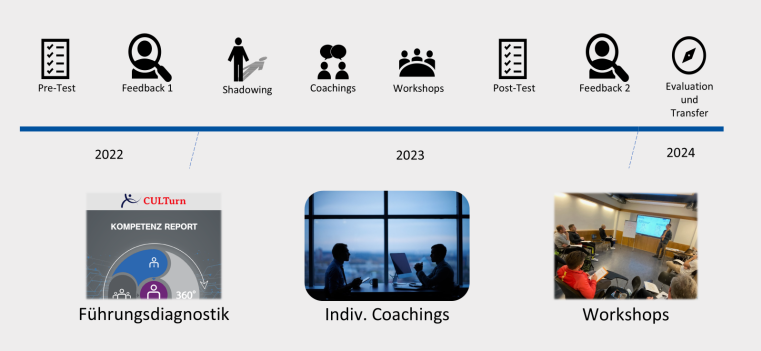
A total of 21 coaches from all over Germany took part in the project on a voluntary basis, spread across the four Olympic sports of the DTB, with rhythmic gymnastics being less represented than the other three sports. A total of 241 people were recruited to create the external image of the coaches.
The topics covered in the individual coaching sessions could be divided into the categories of self-management, athlete management, training and management culture and organization-specific management structures. Competence in the area of self-management plays a decisive role in the other three management areas. As part of the shadowing, additional training observations were made by the coach, which were also taken up in the individual coaching sessions. Four face-to-face workshops were also held with the support of the DTB. These took place in Berlin, Hanover, Frankfurt and Schmiden. Each participant was required to attend one of these face-to-face workshops. The various tools and settings were evaluated positively; both the leadership diagnostics with evaluation discussion, the individual coaching sessions and training visits as well as the group workshops were particularly appreciated by the trainers in this combination. The variety of impulses was rated as beneficial.
Quantitative results: The coaches show high scores in all strategy areas as well as the respective specific leadership roles. Male and female coaches consistently rated themselves the same, except in the area of competition. The gender effects were therefore small. No differences were found in the external image between the reviewer groups or between different sports. The quantitative data also shows that charisma offers the greatest potential for development. The development potential in the area of charisma in particular was also explicitly addressed by the self-image participants in the feedback interviews, meaning that the quantitative results are consistent with the qualitative evaluation of the initial diagnostics. The initial diagnostics make it clear that the coaches in the DTB achieved above-average scores in almost all leadership roles, which superiors, colleagues and athletes can confirm to the same extent. Although the coaches are therefore characterized by a high level of leadership competence, improvements in individual leadership roles could still be found in the final diagnostics despite a ceiling effect that had to be taken into account.
Qualitative results: The focal points in the coaching processes can be divided into four areas of leadership competence, with self-leadership underlying the other three topics: 1. self-leadership (e.g. dealing with extreme situations such as success vs. defeat) 2. athlete (e.g. feedback and motivation, conflict resolution) 3. training culture (e.g. communication within the coaching team, with parents) 4. association (e.g. association development and structures). Key statements on leadership roles based on the Competing Values Framework and charisma also make it clear here that charisma offers the greatest potential for improvement, although it is often perceived as non-trainable. In the area of collaboration, it can be stated that strength-oriented interactions between athletes and coaches are a permanent challenge that must be learned step by step. Furthermore, change cannot be forced, it can only be developed together at eye level. In addition, gymnastics is seen as an individual sport in competitions, but is practiced as a team sport in training. In the area of competition, performance is seen as part of value-based personal development. In everyday training, problems arise due to external influences (such as people, structures, social changes) in working in a performance-oriented manner.
Transfer at association level
In close cooperation with the DTB, interim results were discussed in focus group workshops and possibilities for implementing the approach in the DTB's training network were explored. The exchange with the experts of the DTB and its partner organizations (state associations, bases, scientific network system) made it possible to gather valuable impulses and adapt the course of the project. Particularly noteworthy is the cooperation with the training commission to sustainably integrate the CULTurn content into the training and further education structures of the DTB and its regional associations. In this context, a workbook was also developed that offers tools for self-reflection and can be integrated into the training structures.
In addition, other coaches who were not among the 21 main participants were strengthened in their leadership skills as part of the group workshops and during training visits to the national bases and squad courses. In addition, several transfer workshops were held in which the topic of leadership skills based on the Competing Values Model was addressed both in the area of education and training for coaches and with full-time management staff in elite Olympic sport. The participants' explicit wish for more support from superiors in everyday life was also addressed. In the future, there is great potential for improvement, particularly in the area of support for elite sports staff. Targeted support for managers at this level could not only further develop their leadership skills, but also have a positive impact on the job satisfaction and working conditions of top coaches.
Workbook
As part of the transfer activities, a workbook was also designed and developed - this also met the explicit wish of the coaches to have working impulses and exercises to strengthen leadership skills in everyday coaching even after the end of the project. In exchange with the representatives of the DTB's training commission, the implementation of these working materials in the association's existing training and further education programs is also planned. In terms of content, the workbook includes numerous tools and reflection processes from the coaching processes of the CULTurn project.
The workbook for self-study can be downloaded here.
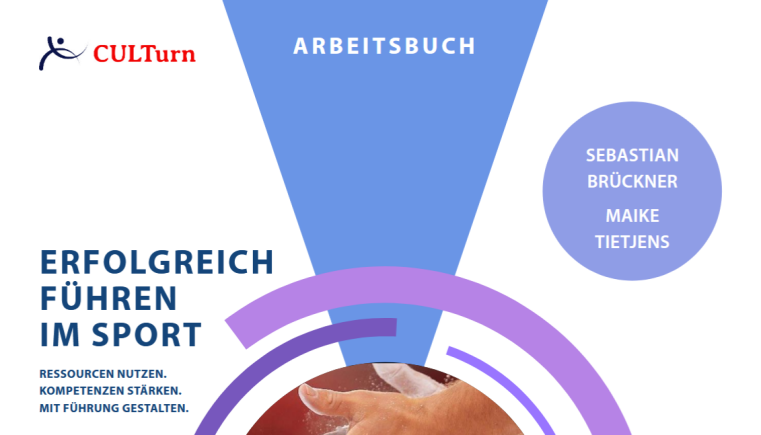
CULVolley
Based on the concept of the CULTurn project, the CULVolley project was developed in consultation with the German Volleyball Association as part of Samuel Schleitzer's master's thesis. In the CULVolley project, coaches in German youth volleyball were given the opportunity to receive 360° feedback on their personal coaching and leadership culture.
The project was presented to the national, national base and state coaches as part of the review of the national youth teams. A total of 12 coaches took part on a voluntary basis. They received feedback from 54 people from their environment. The transfer supplements and increases the CULTurn sample. This means that the questionnaire can be tested on a larger sample and initial comparisons between individual and team sports can be examined. In addition, the broad data basis will make it possible to calculate correlations between personality and the development of leadership skills.

Scientific exchange at conferences: Presentations, posters and workshops
Brückner, S., Tietjens, M., Lanwehr, R., (2024) Fostering German Gymnastics National Team Coaches’ Coaching Behaviors and Leadership Culture: An Intervention Study. Vortrag auf der AAASP, Las Vegas, USA.
Brückner, S., & Tietjens, M. (2025). Erfolgreich führen im Sport: Ressourcen nutzen, Kompetenzen stärken, mit Führung gestalten – Ein CULTurn- Arbeitsbuch zur Selbstreflexion und Weiterentwicklung für Trainer:innen im Sport. Zenodo. https://doi.org/10.5281/zenodo.15963611.
Tietjens, M., Brückner, S. & Strauss, B. (2025). Das 5C-Modell aus Competing Values Framework (CVF) und Charisma: Ein moderner Ansatz für Führungsdiagnostik und -Coaching- im Leistungssport. (2025) Symposium (4 Vorträge) auf der Jahrestagung asp, Bochum.
Tietjens, M., Lanwehr, R., Guzmán, J., Brückner, S. (2024) CULTurn: A Leadership Intervention based on 360-Degree Competing Values Framework and Charismatic Leadership Feedback with National Team Coaches. Vortrag FEPSAC, Innsbruck, Österreich.
Tietjens, M. & Brückner, S., (2024) Coaches as leaders: International perspectives on the „How, what and why?“ across diverse contexts. Symposium FEPSAC, Innsbruck, Österreich.
Tietjens, M., Brückner, S., Lanwehr, R. & Strauss, B. (2024). Testing the Applicability of a Competing Values Framework-based 360° Leadership Feedback with Coaches in the German Gymnastics Federation. Poster NASPSPA, New Orleans, USA.
Tietjens, M., Brückner, S., Lanwehr, R., Möllmann, J., Reh, C., Samol, T. & Strauß, B. (2023). Testing the Applicability of a Competing Values Framework-based 360° Leadership Feedback with Coaches in the German Gymnastics Federation. Poster SCAPSS, Kingston, Canada.
Tietjens, M., Lanwehr, R., Kemler, J. (2023). Did we get up? Leadership in Sport Science 5 years after the wake up call. Vortrag 11. Deutsch-Japanisches Symposium, Tokio, Japan.
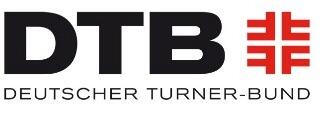
Der Deutsche Turner-Bund e.V.:
The DTB is the umbrella organization for gymnastics and gymnastics. As the second largest top-class sports federation in Germany, the DTB has around 5 million members, spread across around 18,000 clubs and 22 regional gymnastics associations. The DTB is home to the four Olympic sports of gymnastics: rhythmic gymnastics, trampoline, male gymnastics and female gymnastics. These four sports are important for the CULTurn project. National squad coaches in these four sports - both at junior and senior level - are sought as participants in the project.

University of Applied Sciences South Westphalia
The University of Applied Sciences South Westphalia has five campuses and nine faculties. With 10,854 students spread across 85 degree programs (as of 01.12.2023), it is an integral part of the university landscape in North Rhine-Westphalia.

Funded by...
The project is funded by the Competitive Sports Funding of the Federal Institute for Sports Science (BISp). Based on the establishment decree of the Federal Ministry of the Interior (BMI), the BISp has the task of “initiating, promoting and coordinating research tasks that contribute to the fulfillment of the tasks incumbent on the Federal Ministry of the Interior in the field of elite sport (departmental research).”
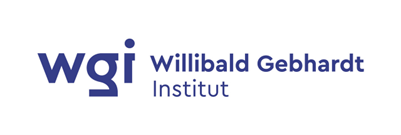
Willibald Gebhardt Institut:
As the “International Institute for Research and Knowledge Transfer in Sport e.V.”, the WGI is interested in contributing its findings to the scientific discourse. The WGI supports various development and funding projects with the aim of “promoting and cultivating the human and social foundations of sport”. In addition to other “settings” of everyday sporting life, the WGI's work also focuses on competitive sport. Founded in 1992, the institute supports the CULTurn project in order to promote transfer at DTB level and across associations.
https://www.wgi.de/de/projekte-in-der-praxis/erfolgreich-fuehren-im-sport/

Prof. Dr. Maike Tietjens
Dr. Maike Tietjens is Professor at the Institute of Sports Science and Vice-Rector for Career Development and Diversity at Uni Münster. She studied sports science and mathematics at CAU in Kiel and received her PhD from Bielefeld University. Her research program focuses on 1) self-concept research across the life span, 2) motor diagnostics and development in childhood, 3) leadership in sport 4) injuries in physical education, and 5) physical literacy. She is a reviewer for (inter)national journals in the areas of sport psychology, developmental and social psychology, and physical education. In addition to her research and teaching, she has been a board member of the German Sport Science Association (dvs), the German Society for Sport Psychology (asp), the German Gymnastics Federation (DTB), and the German Dance Association (DBT). She is also a recognized systematic coach (asb).
Her athletic background is contemporary and classical dance. There she has been active in the training of DBT dance teacher for 20 years.

Prof. Dr. Ralf Lanwehr
Dr. Ralf Lanwehr has been a consultant, trainer & coach for 22 years and a professor of management for 13 years. His work focuses on leadership, culture and change. In business, he cooperates with companies such as BMW, Lufthansa, and SAP at board level.
Sports is a particular sector he specialised in. He coaches managers from the Bundesliga, advises the management of professional clubs, and runs leadership training courses for Bundesliga coaches and managers on behalf of the German Football Association (DFB). His own professional career failed to materialize despite his time as a striker for Balane Inhambane in the 3rd Mozambican league, which was entirely deserved.
In another life, Ralf studied psychology and mathematics at the University of Münster and earned a doctorate in business administration at the Technical University of Berlin.

Dr. Sebastian Brückner
Dr. Sebastian Brückner is an internationally recognized expert in applied sports psychology. In addition to his work as a sport psychology consultant and coach, he advises ongoing projects funded by the German Federal Institute for Sport Science (BISp) and the European Union, and acts as a reviewer for (inter)national sport psychology journals.
The consultations, workshops and interventions he conducts are based on a holistic approach to sport psychological work. His work, especially with the German national badminton team, has led to coaching and consulting of badminton coaches, among others, in the context of trainings for A License.
After studying at Saarland University, Texas A&M University, and the University of Tennessee, Sebastian worked at the Saarbrücken Olympic Training Center from 2008-2017. There he worked with (junior) national team and Olympic athletes on sports psychology topics from a holistic, humanistic perspective of sustainable performance development. Since 2021 he has been successfully working in his own practice.

Jasper Guzmán
After completing his training as a bank clerk, Jasper Möllmann devoted himself fully to sports. In addition to his studies in sports science with a focus on sports management at the Ruhr University Bochum, he also pursued his coaching career in competitive soccer. After obtaining his A License and working abroad in Australia and Chile, he is currently focusing on coaching and consulting projects in professional sports, while continuing his education with an M.A. in Consulting Mediation Coaching at the University of Applied Sciences Münster.